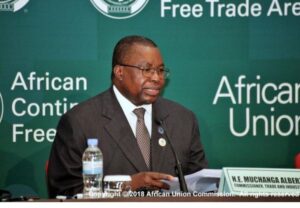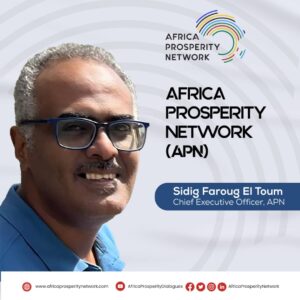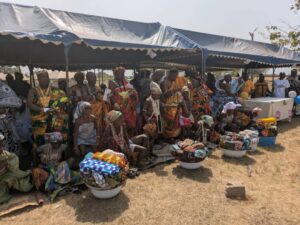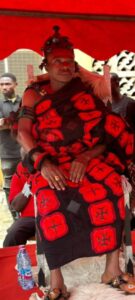
Mining the Atiwa forest will mean Ghana losing all of the benefits it derives from the forest
Ghana is at a point of mortgaging the Bauxite deposit in the Atiwa Forest and Nyinahin to the People’s Republic of China for some $15billion.
Good as it may sound, it appears Ghana in our quest to mortgage the Bauxite deposits is losing sight of the fact that we are also mortgaging the livelihoods of close to 5million Ghanaians.
Ghana’s Senior Minister is on record to have said in an interview with the BBC that mortgaging the bauxite deposits can create in excess of 100,000 jobs for the many unemployed youths of the country.
Whiles employment is good for any country, who is also talking about the risk factors involved in creating jobs at the expense of a standing forest that cares for well over 5million Ghanaians and when taken good care of can in itself create over a million jobs.
The Atiwa Range Forest Reserve measuring 23,663ha is part of an ecosystem known as the Upper Guinea Forest. The Atiwa Range is only one of two such forests left remaining in Ghana. This forest reserve was created in 1926, deemed a Special Biological Protection Area in 1994, one of Ghana’s 30 Globally Significant Biodiversity Areas (GSBAs) in 1999 and in 2001 was listed as an Important Bird Area (IBA) by BirdLife International.
Not only is the Atiwa Range important in biological diversity but it also provides the headwater for three major river systems, the Ayensu, Densu and Birim rivers. These rivers are the most important source of domestic and industrial water for local communities as well as Ghana’s major populations such as its capital Accra.
The Senior Minister in an attempt to justify the need to mortgage is again on record to have said that the bauxite can be exploited without destroying the Birim River because of the location of the bauxite deposit and the location of the Birim River. The Million Cedi question then is, ‘if not the Birim River, how about the Densu and Ayensu Rivers?’ Mr Andres McKinley, a mining and water specialist at Central American University in San Salvador says “mining is an industry whose primary and first victim is water.” It is an undenied fact that water is the biggest casualty when it comes to mining and for anybody to think a water body in a mining location will not suffer leaves so much to be desired.
But even if not for the water bodies, what about climate change issues? International Tropical Timber Organisation (ITTO) reports that Ghana has a deforestation rate of 2.19% whereas experts say, a deforestation rate of 1% is alarming. WACAM States that Environmental Degradation accounts for about 10% of Ghana’s GDP. A situation which is already worrying.
The fact is that there cannot be a mining activity in a forest without deforestation and forest degradation with Biodiversity been a casualty.
A forest is a terrestrial unit of living organisms (plants, animals and microorganisms) all interacting among themselves and with the environment (soil, climate, water and light) in which they live. The environmental ‘common denominator’ of Forest ecological community is a tree. The trees faithfully obeying the ecological cycles of energy, water, carbon and nutrients (WACAM).
Wilson (1988) estimates that the number of species in a forest falls between 5 and 30 million with some scientists estimating even higher to about 50million.
The benefits of biodiversity in a forest include medicinal, soil formation, recreation, nutrient recycling, water regulation and supply, climate regulation, habitat, food and raw materials, storm protection, genetic resources, atmospheric gas balance, pollination and several other services.
Mining the Atiwa forest will therefore mean Ghana losing all of these benefits it derives from the forest.
According to the analysis of AROCHA, bauxite extraction would reduce the value of the Atiwa Forest for water consumption by $386.9 million over 30 years, and for agricultural water by $22.7 million with estimated economic gains from bauxite which is smaller in comparison.
Making economic gains out of Atiwa forest without mining it
According to the Chief Executive of the Forestry Commission, Mr Kwadwo Owusu-Afriyie, “If you look at the long-term benefits of preserving the forest (Atiwa) as a national park vis-a-vis mining the bauxite, the advantages of preserving the forest far outweigh whatever initial benefit that would accrue to us as a nation from the mining.”
“When we have a national park like what is in South Africa and elsewhere, you go there and you see that people are indeed benefitting. I am particularly interested in the three rivers (Birim, Densu and Ayensu) that serve about seven million people in the country. If we are not careful, so many of us are going to die as a result of thirst because of the pollution of the rivers, so it is important we preserve and conserve it,” Mr Owusu-Afriyie said this when he met officials of the United States and The Netherland embassies in Ghana at Kyebi.
Again, Ghana stands to benefit from REDD+ for protecting the forest. The basis behind REDD+ is that developing countries should be financially compensated for Reducing Emissions from Deforestation and Forest Degradation, conservation, the sustainable management of forests and the enhancement of forest carbon stocks.
Protection of the Atiwa forest reduces deforestation and forest degradation which REDD+ calls on developed countries to compensate developing countries that protect their forest.
So why is nobody talking about REDD+, who cares about climate change and what about the other economic benefits from biodiversity in the forest?
Would all of these not benefit us as a country and employ more youth in the preserving and maintaining the forest and making it a National Park than this attempt to mortgage it?
Ghana can do better.
The writer is a student leader, a youth activist and journalist.
Kwasi Frimpong SayItRight
0201833775
gilbfrimp@gmail.com
Source: eveningmailgh.com







